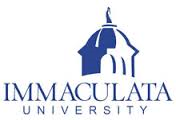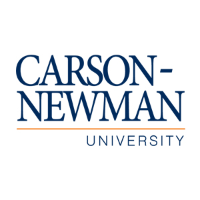What do they do?
Plan, direct, or coordinate student instruction, administration, and services, as well as other research and educational activities, at postsecondary institutions, including universities, colleges, and junior and community colleges.
Also known as:
Academic Affairs Dean, Academic Affairs Director, Academic Affairs Vice President (Academic Affairs VP), Academic Dean, Academic Vice President (Academic VP), Administration Dean, Admissions Dean, Admissions Director, Adult Basic Education Manager, Arts and Sciences Dean, Business Dean, Campus Dean, Campus Director, Chancellor, College Dean, College President, Continuing Education Dean, Continuing Education Director, Dean, Division Director, Education College Dean, Education Dean, Education Director, Enrollment Management Vice President (Enrollment Management VP), Enrollment Services Dean, Enrollment Services Vice President (Enrollment Services VP), Extension Division Director, Faculty Dean, Financial Aid Director, Graduate School Dean, Graduate Studies Dean, Health Sciences Dean, Institutional Research Director, Instruction Dean, Instruction Vice President (Instruction VP), Provost, Registrar, Student Activities Director, Student Affairs Dean, Student Affairs Vice President (Student Affairs VP), Student Development Dean, Student Life Dean, Student Services Dean, Student Services Director, Student Services Vice President (Student Services VP), Students Dean, University President
-
1.7%
Change
Ranks #53 in job growth rate270Job Openings
Ranks #14 in net job growth
-
Pepperdine University
Malibu, CA
-
Creighton University
Omaha, NE
-
Immaculata University
Immaculata, PA
-
University of Southern California
Los Angeles, CA
-
Carson-Newman University
Jefferson City, TN
Looking for colleges that offer a specific major? Use the College Match Tool to find your best-matched schools and discover your estimated Net Price!
- Doctorate or Professional Degree (14%)
- Master's degree (44%)
- Bachelor's degree (25%)
- Associate's degree (5%)
- Some college, no degree (7%)
- High school diploma equivalent (5%)
- Less than high school diploma (1%)
Most Popular Majors that prepare Education Administrators, Postsecondary
-
#1
-
Degrees Granted
5,781
-
Female Students
3,948
-
Male Students
1,833
-
Median Starting Salary
$37,307
-
-
#2
-
Degrees Granted
837
-
Female Students
555
-
Male Students
282
-
Median Starting Salary
$37,307
-
-
#3
-
Degrees Granted
153
-
Female Students
117
-
Male Students
36
-
Median Starting Salary
$37,307
-
People in this career often have these skills:
- Reading Comprehension - Understanding written sentences and paragraphs in work-related documents.
- Critical Thinking - Using logic and reasoning to identify the strengths and weaknesses of alternative solutions, conclusions, or approaches to problems.
- Active Listening - Giving full attention to what other people are saying, taking time to understand the points being made, asking questions as appropriate, and not interrupting at inappropriate times.
- Writing - Communicating effectively in writing as appropriate for the needs of the audience.
- Speaking - Talking to others to convey information effectively.
- Monitoring - Monitoring/Assessing performance of yourself, other individuals, or organizations to make improvements or take corrective action.
- Instructing - Teaching others how to do something.
- Time Management - Managing one's own time and the time of others.
- Active Learning - Understanding the implications of new information for both current and future problem-solving and decision-making.
- Complex Problem Solving - Identifying complex problems and reviewing related information to develop and evaluate options and implement solutions.
- Judgment and Decision Making - Considering the relative costs and benefits of potential actions to choose the most appropriate one.
- Learning Strategies - Selecting and using training/instructional methods and procedures appropriate for the situation when learning or teaching new things.
- Social Perceptiveness - Being aware of others' reactions and understanding why they react as they do.
- Management of Personnel Resources - Motivating, developing, and directing people as they work, identifying the best people for the job.
- Coordination - Adjusting actions in relation to others' actions.
- Persuasion - Persuading others to change their minds or behavior.
- Negotiation - Bringing others together and trying to reconcile differences.
- Service Orientation - Actively looking for ways to help people.
People in this career often know a lot about:
- English Language - Knowledge of the structure and content of the English language including the meaning and spelling of words, rules of composition, and grammar.
- Administration and Management - Knowledge of business and management principles involved in strategic planning, resource allocation, human resources modeling, leadership technique, production methods, and coordination of people and resources.
- Education and Training - Knowledge of principles and methods for curriculum and training design, teaching and instruction for individuals and groups, and the measurement of training effects.
- Customer and Personal Service - Knowledge of principles and processes for providing customer and personal services. This includes customer needs assessment, meeting quality standards for services, and evaluation of customer satisfaction.
- Personnel and Human Resources - Knowledge of principles and procedures for personnel recruitment, selection, training, compensation and benefits, labor relations and negotiation, and personnel information systems.
People in this career often have talent in:
- Written Comprehension - The ability to read and understand information and ideas presented in writing.
- Oral Expression - The ability to communicate information and ideas in speaking so others will understand.
- Written Expression - The ability to communicate information and ideas in writing so others will understand.
- Problem Sensitivity - The ability to tell when something is wrong or is likely to go wrong. It does not involve solving the problem, only recognizing that there is a problem.
- Oral Comprehension - The ability to listen to and understand information and ideas presented through spoken words and sentences.
- Inductive Reasoning - The ability to combine pieces of information to form general rules or conclusions (includes finding a relationship among seemingly unrelated events).
- Speech Recognition - The ability to identify and understand the speech of another person.
- Speech Clarity - The ability to speak clearly so others can understand you.
- Originality - The ability to come up with unusual or clever ideas about a given topic or situation, or to develop creative ways to solve a problem.
- Deductive Reasoning - The ability to apply general rules to specific problems to produce answers that make sense.
- Fluency of Ideas - The ability to come up with a number of ideas about a topic (the number of ideas is important, not their quality, correctness, or creativity).
- Information Ordering - The ability to arrange things or actions in a certain order or pattern according to a specific rule or set of rules (e.g., patterns of numbers, letters, words, pictures, mathematical operations).
- Near Vision - The ability to see details at close range (within a few feet of the observer).
- Category Flexibility - The ability to generate or use different sets of rules for combining or grouping things in different ways.
- Selective Attention - The ability to concentrate on a task over a period of time without being distracted.
People in this career often do these activities:
- Direct administrative or support services.
- Evaluate employee performance.
- Manage human resources activities.
- Develop educational goals, standards, policies, or procedures.
- Recommend organizational process or policy changes.
- Administer tests to assess educational needs or progress.
- Prepare tests.
- Conduct employee training programs.
- Hire personnel.
- Recruit personnel.
- Supervise employees.
- Communicate with government agencies.
- Advise others on career or personal development.
- Prepare financial documents, reports, or budgets.
- Prepare operational budgets.
- Develop operating strategies, plans, or procedures.
- Schedule activities or facility use.
- Prepare staff schedules or work assignments.
- Develop organizational policies or programs.
- Prepare forms or applications.
- Represent the organization in external relations.
- Prepare operational reports or records.
- Prepare reports detailing student activities or performance.
- Serve on institutional or departmental committees.
- Teach classes in area of specialization.
- Monitor student performance.
- Advise students on academic or career matters.
- Analyze data to inform operational decisions or activities.
- Confer with organizational members to accomplish work activities.
- Manage outreach activities.
- Manage operations, research, or logistics projects.
- Prepare proposals or grant applications to obtain project funding.
- Coordinate special events or programs.
- Conduct financial or regulatory audits.
- Direct facility maintenance or repair activities.
This page includes data from:

 Occupation statistics: USDOL U.S. Bureau of Labor Statistics Occupational Employment Statistics
Occupation statistics: USDOL U.S. Bureau of Labor Statistics Occupational Employment Statistics
 Videos: CareerOneStop, USDOL/ETA and the Minnesota Department of Employment & Economic Development
Videos: CareerOneStop, USDOL/ETA and the Minnesota Department of Employment & Economic Development









